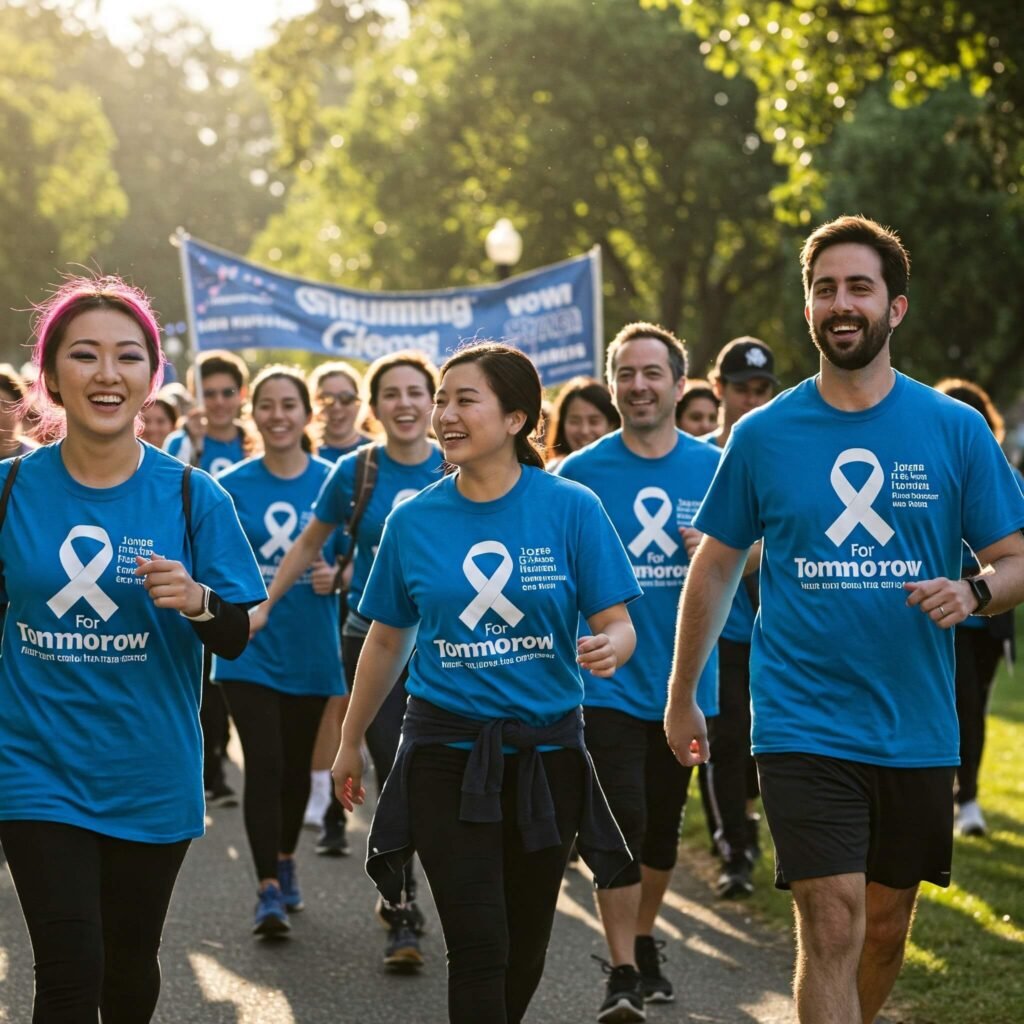Mental health is just as vital as physical health, yet for too long, it has been shrouded in silence and stigma. The good news? More and more people are recognizing the need to talk openly about mental well-being and take action. If you’re passionate about making a difference right where you live, you might be wondering: How to raise mental health awareness effectively in your community?
This isn’t just about sharing statistics or posters; it’s about fostering genuine understanding, compassion, and connection. It’s about creating a community where seeking help is seen as a sign of strength, not weakness. By raising mental health awareness, you help break down barriers, connect people to vital resources, and build a more supportive and resilient local environment. Let’s explore practical, impactful ways you can contribute to this crucial cause.
Why Raising Mental Health Awareness is Crucial
Before diving into how, it’s important to understand the why. Lack of awareness contributes directly to the pervasive stigma surrounding mental illness. Stigma prevents people from seeking help, leading to isolation, worsening conditions, and sometimes tragic outcomes.
- Reduces Stigma: Open conversations normalize mental health challenges.
- Encourages Help-Seeking: When people feel understood and supported, they are more likely to reach out to professionals.
- Builds Support Networks: Awareness initiatives can connect individuals with shared experiences and local resources.
- Informs and Educates: Dispelling myths and providing accurate information empowers everyone.
- Advocates for Resources: Increased awareness can lead to greater investment in local mental health services.
By actively working to raise mental health awareness, you’re not just starting conversations; you’re potentially saving lives and improving the quality of life for countless individuals in your community.
Tackling Stigma to Improve Community Mental Health
Stigma is arguably the biggest hurdle in the journey towards better mental health. It manifests in various forms – self-stigma (internalized shame), public stigma (societal discrimination), and institutional stigma (systemic barriers). Raising mental health awareness must go hand-in-hand with actively fighting stigma.
This means choosing language carefully, challenging misconceptions when you hear them, and sharing accurate, compassionate information. Personal stories, shared safely and responsibly, can be incredibly powerful in humanizing mental health struggles and fostering empathy.

Actionable Ways to Raise Mental Health Awareness Locally
Ready to get started? Here are concrete steps you can take to raise mental health awareness right in your neighborhood, school, workplace, or local gathering spaces:
Educate and Empower Through Knowledge
Knowledge is the first step in combating ignorance and fear.
- Learn the Facts: Understand common mental health conditions, their symptoms, and treatment options from reputable sources like the National Alliance on Mental Illness (NAMI) or Mental Health America (MHA).
- Share Reliable Information: Use your knowledge to inform friends, family, and colleagues. This could be through casual conversations, presentations, or sharing resources online.
- Host an Information Session: Partner with a local mental health professional or organization to offer a talk or workshop at a community center, library, or place of worship.
Share Personal Stories (Responsibly)
Authenticity resonates. If you are comfortable and feel safe doing so, sharing your personal journey with mental health challenges or supporting a loved one can be incredibly impactful.
- Connect Through Experience: Personal narratives help others feel less alone and can inspire them to seek help.
- Control Your Narrative: You decide what, when, and how much you share. Your safety and well-being are paramount.
- Write or Speak: Share your story through a blog post, a local newspaper’s opinion piece, or by speaking at a community event.
Support Local Mental Health Awareness Groups
Many communities already have organizations working on mental health. Don’t reinvent the wheel – join forces!
- Volunteer Your Time: Offer your skills to a local non-profit focused on mental health support or advocacy.
- Participate in Events: Walkathons, fundraisers, or awareness drives are great ways to get involved and meet like-minded individuals.
- Donate (If Possible): Financial contributions, no matter the size, can help organizations provide services and run programs.

Host or Join Community Events
Events create visibility and bring people together.
- Awareness Fair: Organize a small fair with information booths from local mental health providers, support groups, and wellness practitioners.
- Workshops: Offer sessions on stress management, mindfulness, or mental health first aid.
- Panel Discussions: Invite individuals with lived experience, clinicians, and advocates to discuss mental health topics openly.
- Creative Outlets: Host an art show, poetry reading, or open mic night focused on mental health themes.
Use Social Media for Wide Reach
Social media is a powerful tool for spreading messages quickly.
- Share Reliable Content: Post facts, articles, and resources from credible mental health organizations.
- Participate in Campaigns: Join national or local awareness campaigns using relevant hashtags.
- Share Your Thoughts: Write posts about why mental health awareness matters to you and encourage others to talk about it.
- Create Your Own Content: Design simple graphics or short videos with key messages or inspiring quotes.
Champion Policies that Support Mental Health Awareness
Awareness can also lead to systemic change.
- Contact Local Representatives: Advocate for better funding for mental health services or mental health education in schools.
- Support Mental Health Parity: Learn about laws that require mental health insurance coverage to be equal to physical health coverage and support efforts to enforce them.
- Advocate in Your Workplace or School: Encourage the implementation of mental health support programs, employee assistance programs (EAPs), or student counseling services.

Be a Mental Health Ally Through Listening
Sometimes the most powerful way to raise awareness is through individual connection.
- Learn Active Listening: Develop skills to listen non-judgmentally and empathetically to someone who is struggling.
- Offer Support: Let people know you are a safe person to talk to, without offering unsolicited advice unless asked.
- Know When to Refer: Be aware of local mental health resources and be prepared to help someone find professional help if they need it. A great resource for immediate support is the Suicide & Crisis Lifeline (dial 988 in the US).
Sustaining Your Awareness Efforts
Raising mental health awareness isn’t a one-time event; it’s an ongoing commitment. Consistency is key. Keep the conversation going, find new ways to engage your community, and celebrate small victories along the way. Partnering with others amplifies your impact and helps prevent burnout.
Conclusion: Your Role in Building a Mentally Healthy Community
Raising mental health awareness in your community is a powerful act of compassion and solidarity. By educating yourself and others, sharing stories, supporting local efforts, hosting events, leveraging social media, advocating for change, and simply being there for one another, you contribute to dismantling stigma and creating a more supportive environment for everyone.
Every conversation, every shared resource, and every act of kindness makes a difference. Start small, stay consistent, and remember that you have the power to help build a community where mental health is openly discussed, fully supported, and truly valued.
































